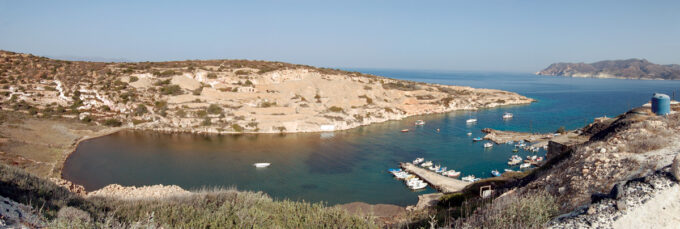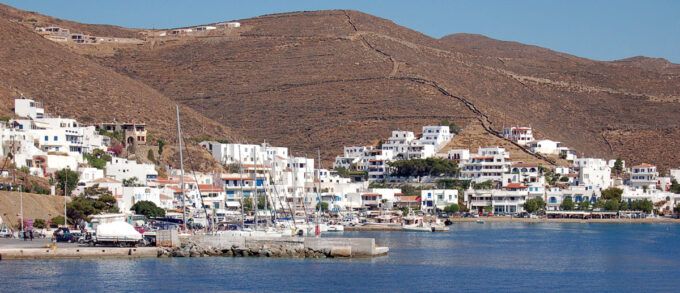Kímolos
According to mythology, the name of the island derived from its first settler, Kímolos, son of god Apollo (Apollo had many kids!!!). The island was also known in antiquity as “Echinoúsa”, i.e. island of Echidnes (= snakes, in Greek), whereas the Venetians called it “Arzientera” (silver). In the 5th century BC., its civilization was rather…











